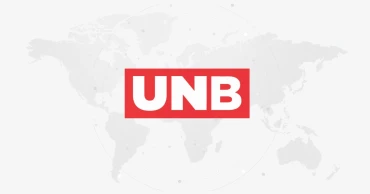illicit financial flows
FS highlights govt's priority of recovering stolen assets, seeks UN’s support to combat illicit financial flows
Foreign Secretary Md Jashim Uddin had a series of meetings with the UN high officials and highlighted the interim government's priority of recovering stolen assets.
He called for the UN’s cooperation in addressing tax evasion and combating illicit financial flows.
Regarding Bangladesh’s upcoming graduation from LDC status, the Foreign Secretary stressed the need for continued international support during both the transition and post-graduation phases.
Acknowledging the challenges in achieving the Sustainable Development Goals (SDGs) due to the global economic downturn triggered by the COVID-19 pandemic and ongoing global conflicts, he sought stronger support from the UN System, including through development cooperation facilitated by the Resident Coordinator’s Office.
He also expressed appreciation that the Department of Economic and Social Affairs (DESA) will serve as the implementing body for the recent Bangladesh-led UN General Assembly resolution declaring May 6 as Rural Development Day.
The Foreign Secretary met with UN Under-Secretary-General for Economic and Social Affairs Li Junhua in the UN Headquarters in New York on October 14.
During discussion, he briefed the Under-Secretary-General on the ongoing reform process in Bangladesh currently being undertaken by the interim government, reflecting the aspirations of the “July-August Revolution”.
Jashim emphasized the importance of the UN’s technical and policy support in advancing the government’s reform agenda, particularly in enhancing accountability and transparency, building on the five decades of partnership between the UN and Bangladesh, according to the Ministry of Foreign Affairs.
USG Junhua appreciated Bangladesh’s current chairmanship in the Second Committee of the UN General Assembly and assured all out support from the Secretariat.
Read: FS holds fruitful talks on UN support in transparency and accountability
He told the Foreign Secretary that DESA would be happy to assist Bangladesh in the reform process, especially through their tools for public institution capacity building and digital governance.
He stated that the LDC graduation should indeed be considered a new starting point, and the graduated countries should continue to benefit from preferential arrangements.
Concerning SDG implementation, he underscored the importance of the upcoming Fourth International Conference to be held in 2025 in Spain; during which efforts would be made to reinvigorate the global development assistance, including through innovative financing, ensuring debt sustainability and the reform of the international financial institutions.
The Foreign Secretary also met Selwin Charles Hart, UN Secretary General’s Special Adviser on Climate Action and Just Transition.
During the meeting, the Foreign Secretary reiterated Bangladesh’s call for the full implementation of the Paris Agreement, including ensuring adequate climate finance as promised.
Read more: Meeting with FS in NY: UN reaffirms support for Bangladesh's reform initiatives
1 year ago
9 countries inc. Bangladesh release first national estimates of illicit financial flows with UN support
Afghanistan, Bangladesh, Colombia, Ecuador, Maldives, Mexico, Myanmar, Nepal, and Peru have collaborated with the United Nations Office on Drugs and Crime (UNODC) to produce the first-ever national estimates on illicit financial flows (IFFs) associated with drug trafficking, trafficking in persons, and smuggling of migrants.
This groundbreaking initiative aims to tackle the global challenge of illicit financial activities.
The official estimate report states, “Drug trafficking is estimated to have generated an annual average of $481 million in outward IFFs between 2017 and 2021. This estimate includes the trafficking in methamphetamine tablets, heroin and synthetic opioids such as buprenorphine and phensidyl.”
Also Read: Bangladesh seeks stronger support from int'l community for Rohingya repatriation
The estimates, which have been made possible with the support of the UNODC, are now available on the UN's Global Sustainable Development Goals (SDGs) Indicators Database.
Additionally, a recent report by the United Nations Conference on Trade and Development (UNCTAD) has unveiled preliminary findings on tax and commercial IFFs from eleven African nations through an informative infographic.
Reducing IFFs by 2030 stands as a significant priority under the United Nations' SDG 16. This goal seeks to promote peace, justice, and strong institutions. As custodians of SDG indicator 16.4.1, UNCTAD and UNODC work collaboratively to measure the total value of inward and outward IFFs in current US dollars.
Also read: 5 members of human trafficking gang held in Cox’s Bazar
Both organizations have been actively assisting countries in generating transparent, reliable, and internationally comparable statistics on IFFs.
By shedding light on the sectors, activities, and channels that are most susceptible to illicit financial flows, these statistics serve as a crucial tool in identifying priority areas where immediate action is required to combat such illicit activities.
Also Read: UN expert urges Bangladesh to step up efforts to prevent trafficking
2 years ago



